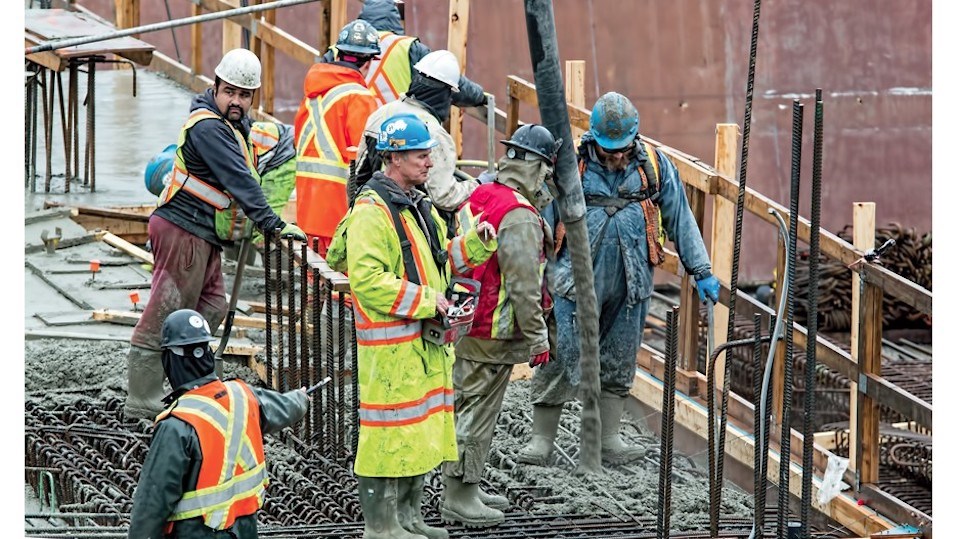Canada's efforts to boost housing supply is facing a hurdle as Canada Mortgage and Housing Corp. (CMHC) flags declining construction productivity across the country, mirroring concerns in B.C.
“There is now little debate over the need for a massive increase in supply to make housing more affordable in Canada. The conversation has now moved to the ways and means by which this can be achieved. One avenue that should be followed is increasing productivity in residential construction, for example labour productivity,” said CMHC deputy chief economist Ken Hughes in the March 7 report.
But what does this look like in B.C.?
Jeannine Martin, president of the Vancouver Regional Construction Association, said that construction productivity in the province is seeing a retraction.
The value of proposed construction projects in B.C. sat at $221 billion in the spring of 2023; however, this declined to $174 billion as of fall 2023, according to the latest data from the BC Construction Association (BCCA).
The retirement of baby boomers is described by CMHC as a “major concern,” with 25 per cent of those currently employed across Canada expected to retire in the next 10 years.
“Today in Canada, labour productivity is limited by the retirement of baby boomers and widespread shortages of specialized labour. There is hardly a region in the country that is not impacted by one of these factors,” said Hughes.
A combination of factors such as inflationary pressures, interest rates, and material and labour costs are making it increasingly difficult to build in the province, according to Ron Rapp, president of the Home Builders Association of Vancouver.
“That may or may not be a big factor for some of the larger players, the Bosas, the Polygons and the Anthems of this world. A lot of housing is built by a lot of guys who are a lot smaller and … are certainly not as strong as some of the bigger guys. They’re having to really think twice about whether or not to proceed,” he said, referencing well-known developers in the Lower Mainland.
“The good news is that there's, obviously, recognition of the fact that we need to significantly bolster our labour resources in order to meet these rather ambitious goals in terms of housing production.”
Rapp added that there has been a lot of resources dedicated to boosting labour, but that positive results will not be seen overnight.
In B.C., the number of positions that are expected to go unfilled due to labour shortages by 2032 has decreased by 49 per cent, according to BCCA.
In addition, the number of construction job openings in the province thanks to retirements and expansion by 2032 has decreased by 15 per cent.
However, Martin warned that despite these improvements there is still a "significant" labour gap that needs to be filled.
“If you have all these senior people retiring and you're replacing them with less experienced people, project costs will go up and other risk factors will come into play. So, although maybe the numbers are down a little bit, the concern is still similar, especially with the amount of people we’re expecting to retire,” she said.



